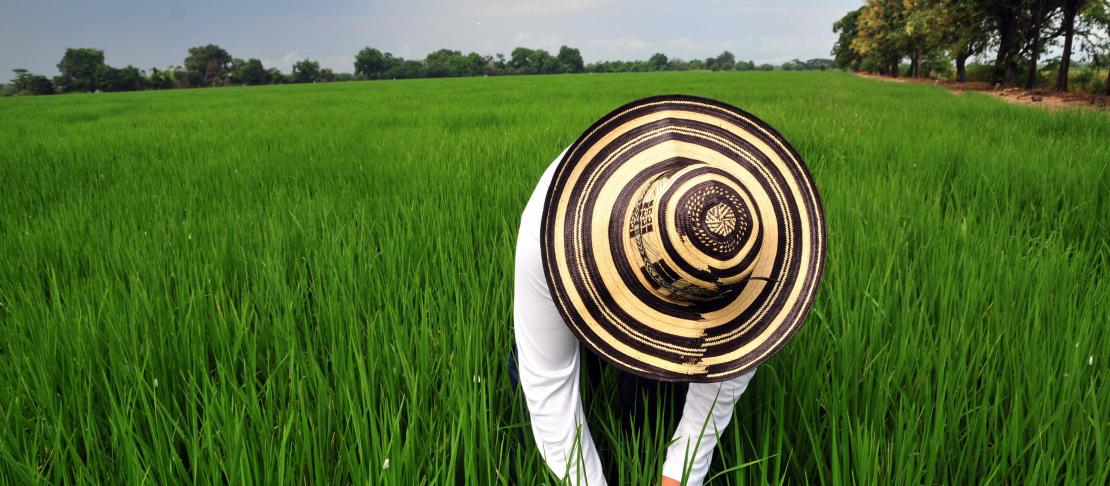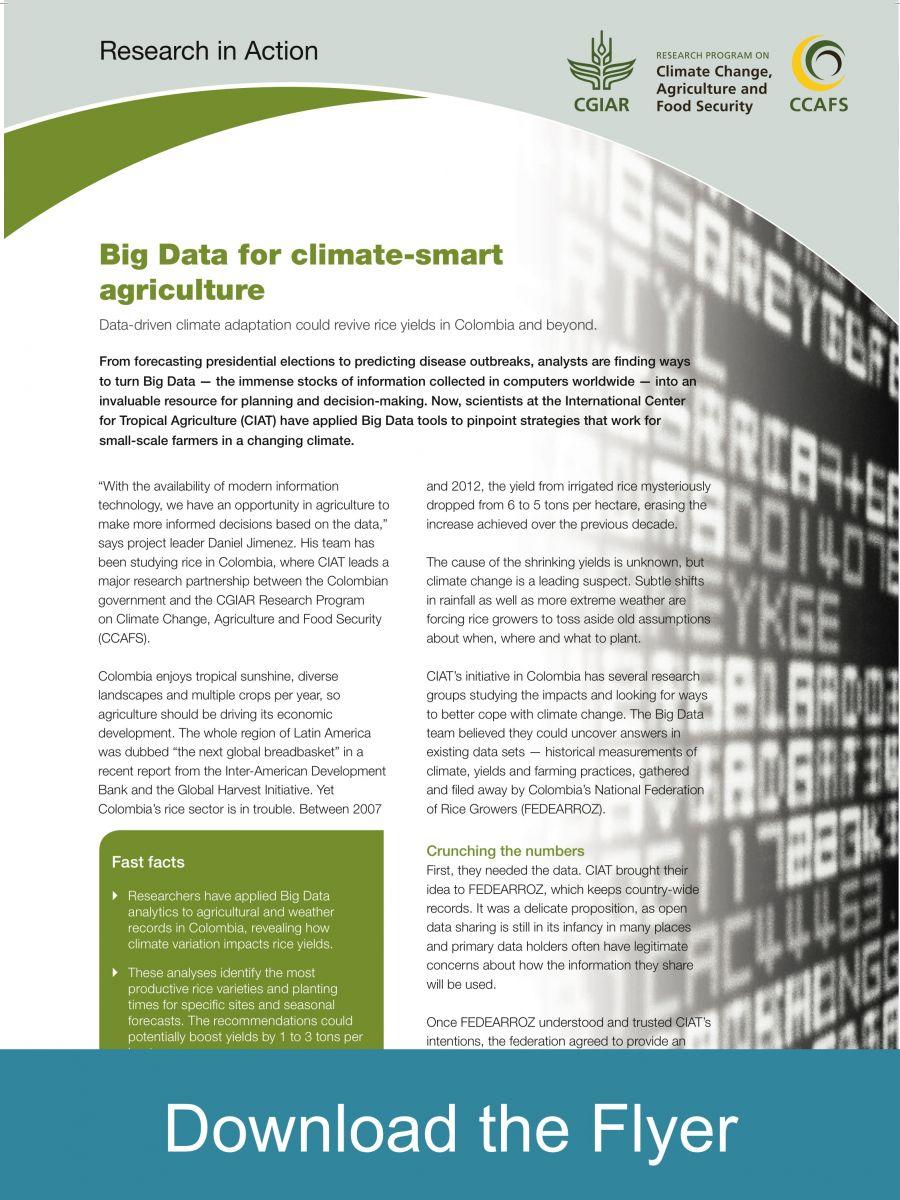Big Data for climate-smart agriculture

Project description
 A changing, complex and extremely variable climate is challenging farmers and food security in Latin America. Indeed, in some rice systems in Colombia for example, climate accounts for 30% to 40% of production variability. New approaches to rural advisory services are needed to support farmers’ decision-making processes and boost their resilience to the impacts of climate change.
A changing, complex and extremely variable climate is challenging farmers and food security in Latin America. Indeed, in some rice systems in Colombia for example, climate accounts for 30% to 40% of production variability. New approaches to rural advisory services are needed to support farmers’ decision-making processes and boost their resilience to the impacts of climate change.
This projects aims to support a novel use of Information Communication Technologies (ICTS) and Big Data principles to develop a two-way Climate-Site-Specific Management System (CSMS). The CSMS allows farmers to contribute with self-generated data on soil, crop management and production in return for tailored, site-specific information on Climate-Smart Practices (CSP). It is based on both crowdsourcing and secondary databases.
The approach has been implemented for rice systems with three different scenarios of data availability (high, medium or low). The project is conducted jointly with the Latin American Fund for Irrigated Rice (FLAR) in Colombia, Peru and Nicaragua.
Following the success of CCAFS' Big Data analysis in Colombia, the project will be rolled out in Nicaragua, Peru, Argentina and Uruguay.
Key activities include:
- Identification of FLAR`s partners needs in terms of the data and knowledge management system.
- Development and piloting of a 2-way Climate-Site-Specific Management System, where farmers contribute data and receive tailored site-specific information on Climate-Smart Practices.
- Dissemination, adoption and capacity building on CSMS tools.
At the end of the project farmers, as well as FLAR and CIAT breeders and agronomists, will be using the Climate-Site-Specific Management System to better understand site specific crop responses to climate variability, in order to improve crop management and identify the best climate-smart agricultural practices. In the short term, the CSMS will allow at least 5000 farmers to:
- Improve/adapt their management practices of current varieties.
- Maximize their productivity.
Turning rice research upside down
The Big Data on Colombian rice comes from commercial fields in ambient weather, a stark departure from other research. Traditionally, agronomists seeking the optimal varieties and techniques for a given environment would conduct small field experiments with tightly controlled climate and soil conditions. CIAT embraced the opposite: large, uncontrolled, real-world data sets. With good analytics, this produces nuanced, reliable recommendations much more quickly. It also gives rice breeders the feedback they need to develop climate-adapted lines.
It is believed that CSMS will have mitigation impacts equivalent to a saving of USD 90M of inputs into the rice systems. At the same time, CSMS should potentially produce 150,000 tons more rice in four years, significantly increasing food security. The results will be more food and less variable yields for small scale farmers vulnerable to climate impacts.
By the end of 2016, the project provided evidence of the advantages of using the CSMS and reduce yield losses by at least 20%. Because the system is developed together with FLAR and its partners in each country, the system has the potential to reach more than 300,000 rice growers in the long-term. With the involvement of FLAR we expect to reach up to 700,000 ha with the potential to influence many millions of farmers in other cropping systems and regions.
Outputs
- Diagnosis of existing information of target Climate Smart Practices, and partners needs in terms of data and knowledge management system in Colombia, Peru and Nicaragua.
- Databases with readily-available information on soils, crop management, climate and yield.
- Data capture standardized protocol (site-specific climate, soil and management information), App to capture information and Beta version of an Internet based system for data collection.
- CSMS for rice capable of storing, processing, and delivering information on tailored site-specific information on CSP practices.
- Multi-temporal scale prediction of best CSP.
- Ready-to-use analytical tools (R scripts, guidelines).
- Trainings to researchers, agronomists, and farmers through FLAR`s network
Location
This research is carried out in Colombia, Peru and Nicaragua.
Partners
Fondo Latinoamericano para Arroz de Riego (FLAR) and its network, which includes more than 30 partners in the 17 Latin American countries.
This work builds on highly successful research with the Ministry of Agriculture of Colombia that has provided tools for farmers and other institutions to use data-driven rural advisory services to make informed decisions.
Further information
For further information, please contact the project leaders, Daniel Jiménez (CIAT): d.jimenez@cgiar.org or Sylvain Jean Delerce (CIAT) at s.delerce@cgiar.org